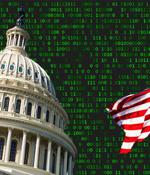Security News

Former policy boss claims Facebook cared little about national security as it chased the mighty Yuan Facebook's former director of global public policy told a Senate committee that Meta CEO Mark...

Your profile can be used to present content that appears more relevant based on your possible interests, such as by adapting the order in which content is shown to you, so that it is even easier for you to find content that matches your interests. Content presented to you on this service can be based on your content personalisation profiles, which can reflect your activity on this or other services, possible interests and personal aspects.

Your profile can be used to present content that appears more relevant based on your possible interests, such as by adapting the order in which content is shown to you, so that it is even easier for you to find content that matches your interests. Content presented to you on this service can be based on your content personalisation profiles, which can reflect your activity on this or other services, possible interests and personal aspects.

An Australian Senate Committee has recommended banning Chinese social media apps in the land down under, on grounds the Communist Party of China uses them to spread propaganda and misinformation. The Select Committee on Foreign Interference through Social Media yesterday filed its final report [PDF] which outlines the reason the committee convened: social media has become the public square in which policy debate tales place, but "Is increasingly being weaponized to spread disinformation to deliberately mislead or obscure the truth for malicious or deceptive purposes." Plenty of that disinformation comes from foreign powers, "As part of a broader, integrated strategic campaign to advance their own national interests at Australia's expense."

A report published today by U.S. Senator Gary Peters, Chairman of the Senate Homeland Security and Governmental Affairs Committee, says law enforcement and regulatory agencies lack insight into ransomware attacks to fight against them effectively. While ransomware incidents have been increasingly hitting organizations across the country, there's still room to improve reporting of both attacks and ransom payments which would provide the federal government with the data and information it needs to deter this severe threat to national security, Senator Peters added.

Russia's invasion of Ukraine, and the possibility that the Kremlin may escalate its cyberespionage against the West after being heavily sanctioned, has convinced the US Senate to unanimously pass a bipartisan cybersecurity bill. The Strengthening American Cybersecurity Act of 2022, which now goes to the House, would put into law some of the regulations the Biden Administration and some members of Congress have been advocating for since the onslaught of high-profile ransomware attacks last year, including those on such companies as Colonial Pipeline and meat processor JBS Foods.

How the Senate's new cybersecurity legislation could affect your business. The Senate passed a piece of legislation on Tuesday, detailing new cybersecurity measures that would force businesses to report cyberattacks and ransomware payments.

The U.S. Senate unanimously passed the "Strengthening American Cybersecurity Act" on Tuesday in an attempt to bolster the cybersecurity of critical infrastructure owners in the country. The new bipartisan legislation, among other things, stipulates entities that experience a cyber incident to report the attacks within 72 hours to the U.S. Cybersecurity and Infrastructure Security Agency, in addition to alerting the agency about ransomware payments within 24 hours.

A bipartisan report released this week by the United States Senate's Homeland Security and Governmental Affairs Committee shows that key government agencies have made little progress in terms of cybersecurity over the past two years. A report published in 2019 found that eight federal agencies failed to meet even the basic cybersecurity standards and protocols.

Chris Inglis was last week appointed America's national cyber director, responsible for coordinating the government's computer security strategy and defending its networks. The United States has been lacking a government computer security chief since President Trump eliminated the position of cybersecurity advisor to the National Security Council in 2018, then held by ex-NSA exploit extraordinaire and Christmas lights enthusiast Rob Joyce.